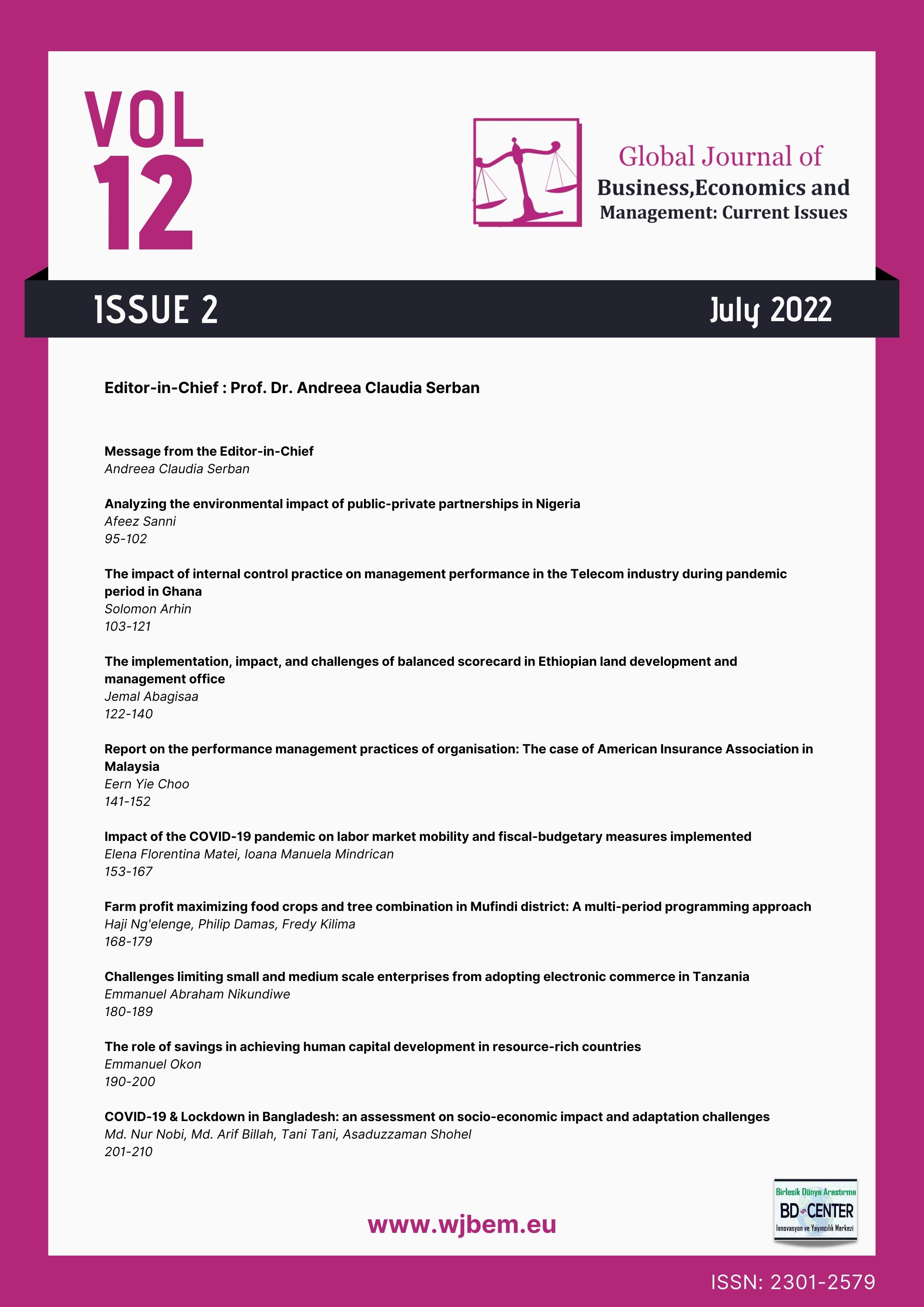The role of savings in achieving human capital development in resource-rich countries
Main Article Content
Abstract
This paper examined the impact of savings on human capital development in Nigeria (resource rich-country) from 1981- 2020. Using Autoregressive Moving Average (ARMA) model, the results indicate that the estimated parameters on gross savings (GSA), official development assistance (ODA), and democracy (DEM) are statistically significantly different from zero with the expected signs except that of GSA. The slope coefficient for GSA is surprisingly negative (despite Nigeria’s oil wealth) and implies that a percentage increase in the gross saving (GSA) will translate into a decrease in the level of human capital development. The possible reasons behind the negative impact of savings on human capital development could be that past governments did not effectively manage the country’s oil wealth, thus leading to low savings which culminated in under-investment in human capital development. As such, Nigeria still grades among the poorest and most miserable in the world in terms of the human development index.
Keywords: Autoregressive Moving Average (ARMA) model; human capital development; Nigeria; resource rich-country.
Downloads
Article Details

This work is licensed under a Creative Commons Attribution 4.0 International License.
The Global Journal of Business Economics and Management: Current Issues is an open-access journal. The copyright holder is the author or authors. Licensee: Birlesik Dunya Yenilik Arastirma ve Yayincilik Merkezi, North Nicosia, Cyprus. All articles can be downloaded free of charge. Articles published in the Journal are Open-Access articles distributed under the CC-BY license [Attribution 4.0 International (CC BY 4.0)].

